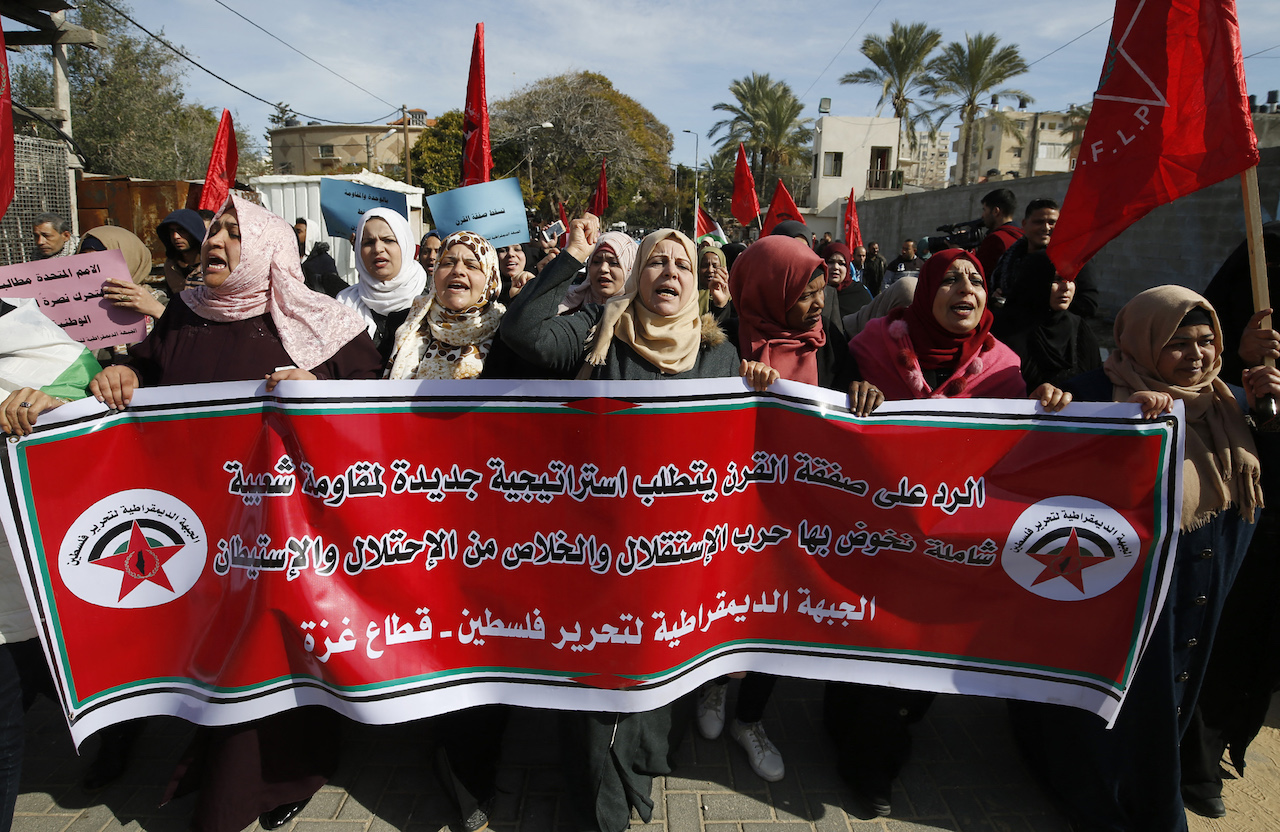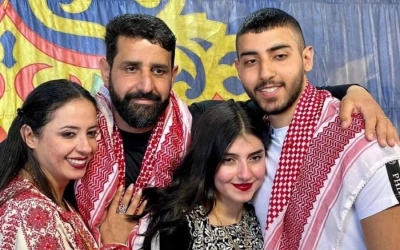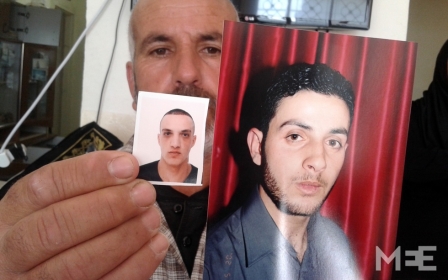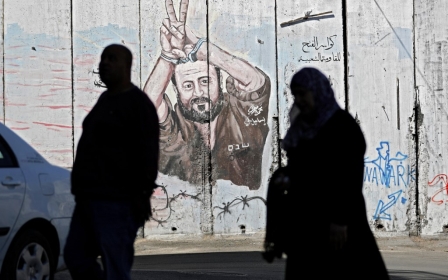Palestine elections: Talks collapse over formation of joint left-wing list
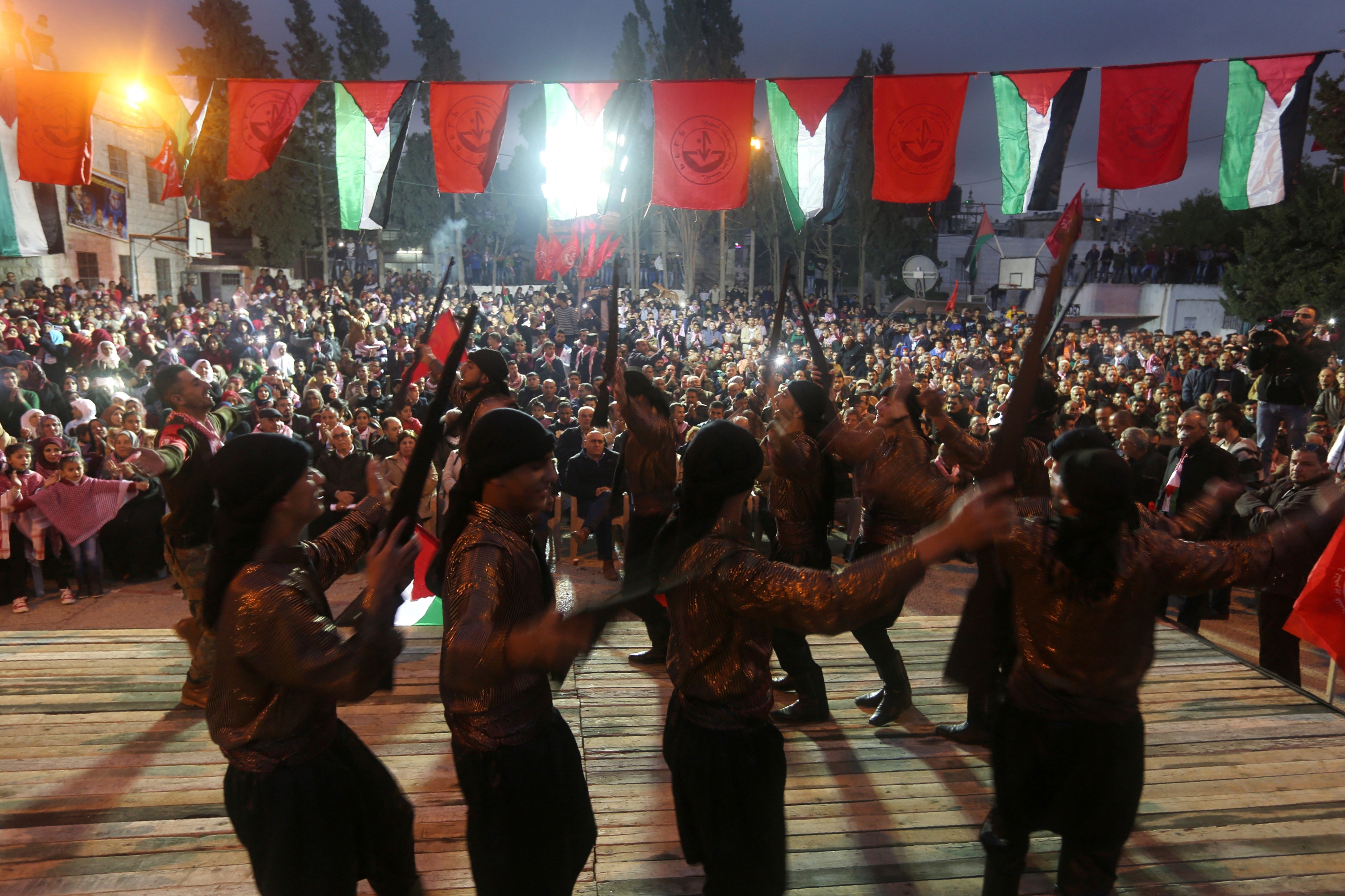
Palestinian leftists have failed to form a coalition to compete in May's legislative elections for the Palestinian Authority after the collapse of nearly a month of discussions.
Five Palestinian left-wing parties had been in negotiations to run in a unified list, but ultimately were unable to come to an agreement over fundamental issues such as their collective attitude towards the 1993 Oslo Accords and the priorities for arranging the electoral list.
Four of the parties, the Popular Front for the Liberation of Palestine (PFLP), the Democratic Front for the Liberation of Palestine (DFLP), the Palestinian People's Party and the Palestinian National Initiative, submitted separate lists to the Central Elections Committee to run in the elections, while the Palestinian Democratic Union (FDA) decided to participate on the ruling Fatah party's list.
The collapse of talks risks undermining the potential gains the left stood to make in the elections, which are the first since 2006 and take place against a backdrop of waning support for the previously dominant Fatah and Hamas factions.
'The parties' lack of confidence in each other in terms of steadfastness in opposition and failure to participate in governments … led to the failure to agree on a unified list of left-wing forces'
- Hani Habib, analyst
In a statement, the organising Follow-up Committee for Dialogue Among Democratic Forces implicitly accused the PFLP of thwarting the dialogue and reaching an agreement.
New MEE newsletter: Jerusalem Dispatch
Sign up to get the latest insights and analysis on Israel-Palestine, alongside Turkey Unpacked and other MEE newsletters
A well-informed source told Middle East Eye that the committee’s statement was not issued by consensus, but rather by representatives of the Palestinian People's Party, due to "bilateral" differences with the PFLP.
The source said that the PFLP had insisted on obtaining the first six seats on the unified list, and had put forward criteria for the ranking of the five parties based on what vote percentage the parties received in the previous elections in 2006, as well as the number of cadres of each faction and the number of detainees in Israeli prisons.
Hamas was victorious in the 2006 elections but Palestinian President Mahmoud Abbas, a member of Fatah, refused to recognise the result, a stance that was backed by much of the international community.
Following weeks of clashes, Hamas retained control of the Gaza Strip, while Abbas and Fatah held control of the West Bank.
In those elections, the PFLP won three seats, while the Alternative list, which included the DFLP, the Palestinian People's Party and the FDA, won two seats. The Independent Palestine list, headed by Mustafa Barghouti, secretary-general of the National Initiative, won two seats as well.
A member of the political bureau of the Palestinian People's Party, Walid al-Awad, refused to go into details and the reasons for the failure of the dialogue, but he argued that the 2006 elections were not suitable as a measuring tool as many changes had taken place in the past 15 years.
The PFLP, which is generally considered the largest faction among the left-wing forces, rejected accusations against it and said it was "legitimate" to take into account the respective influence of each party in the coalition.
A member of the PFLP’s political bureau, Maryam Abu Daqqa, said that the front "never pursued its own interests".
'Real opposition'
Leftists, as well as independent lists, are betting on winning a large number of the 132 seats in the Palestinian Legislative Council, due to the popular distaste for Fatah and Hamas, and a desire for change following declining living standards and the failure of negotiations for the creation of a Palestinian state.
The results of a recent poll conducted by the Palestinian Centre for Policy and Survey Research on the public’s expectations of the results of the legislative elections, if they were to take place today, showed that 45 percent of those polled expected Fatah to win, compared to 23 percent who expected Hamas to win.
Eighteen percent expect third party lists or new, unknown lists to win today, and 14 percent did not specify their position.
Abu Daqqa rejected accusations that the failure to form a coalition had come due to arguments over the electoral lists. She said that the PFLP was seeking an agreement based on a "political and social basis" and aimed at "real opposition to the Oslo Accords" which have formed the basis for limited Palestinian autonomy since their signing in 1993, but have been criticised as a capitulation to Israel by many in Palestinian political circles.
She said the PFLP was also intent on confronting what she described as a "harmful dichotomy" between Fatah and Hamas.
The PFLP was founded in 1967 as a Marxist-Leninist organisation, and became internationally famous for hijacking passenger planes and espousing the creation of a single secular state in Palestine. In 1969, Maoists in the PFLP split from the group to form the DFLP.
Both parties were staunch opponents of the Oslo Accords.
A member of DFLP’s political bureau, Talal Abu Zarifa, asserted that it would have been better for the left-wing forces to run in the elections with one list “so that the voter would not get lost and the votes dispersed”.
“The dialogues among the left-wing democratic forces showed the possibility of reaching common denominators that included formulating a unified political, social and economic programme and laying down controls to ensure the unity of future work to develop an effective democratic pole that puts an end to the state of bilateral polarisation [between Fatah and Hamas],” he told MEE.
'Mistrust'
Journalist Hassan Jaber, a former member of the PFLP, said that "mistrust" was the main reason for the failure of the left-wing factions’ dialogue.
He explained that the PFLP wanted guarantees that certain factions would not "unilaterally" agree to participate in governments, which in their view contradicted the basic principle of opposing the Oslo Accords.
The party was also wary after the collapse of the former "National Democratic Alliance", which had been established for the 2016 local elections and included the five left-wing forces but saw the Palestinian People's Party’s and the FDA agreeing to join governments formed by President Abbas.
Jaber said other factions in the new coalition had refused to pledge not to participate in the government.
Political analyst Hani Habib said he believed that most of the forces of the Palestinian left would not exceed the threshold and would fail to reach the Legislative Council after the lack of agreement on a unified leftist list.
Habib said to MEE that the dialogue proved the difficulty of political convergence among the forces, due to the difference in their respective views of the Oslo Accords and whether the Palestinians should withdraw from them altogether.
“The parties' lack of confidence in each other in terms of steadfastness in opposition and failure to participate in governments, and the disagreement over the first ranks on the electoral list, also led to the failure to agree on a unified list of left-wing forces,” Habib added
Despite the failure of the talks, Walid al-Awad of the Palestinian People's Party said that he was optimistic that the demographic changes in Palestinian society since 2006 meant there was still an opportunity for the left, pointing out that around 54 percent of potential voters would be casting their ballots for the first time.
Middle East Eye delivers independent and unrivalled coverage and analysis of the Middle East, North Africa and beyond. To learn more about republishing this content and the associated fees, please fill out this form. More about MEE can be found here.


